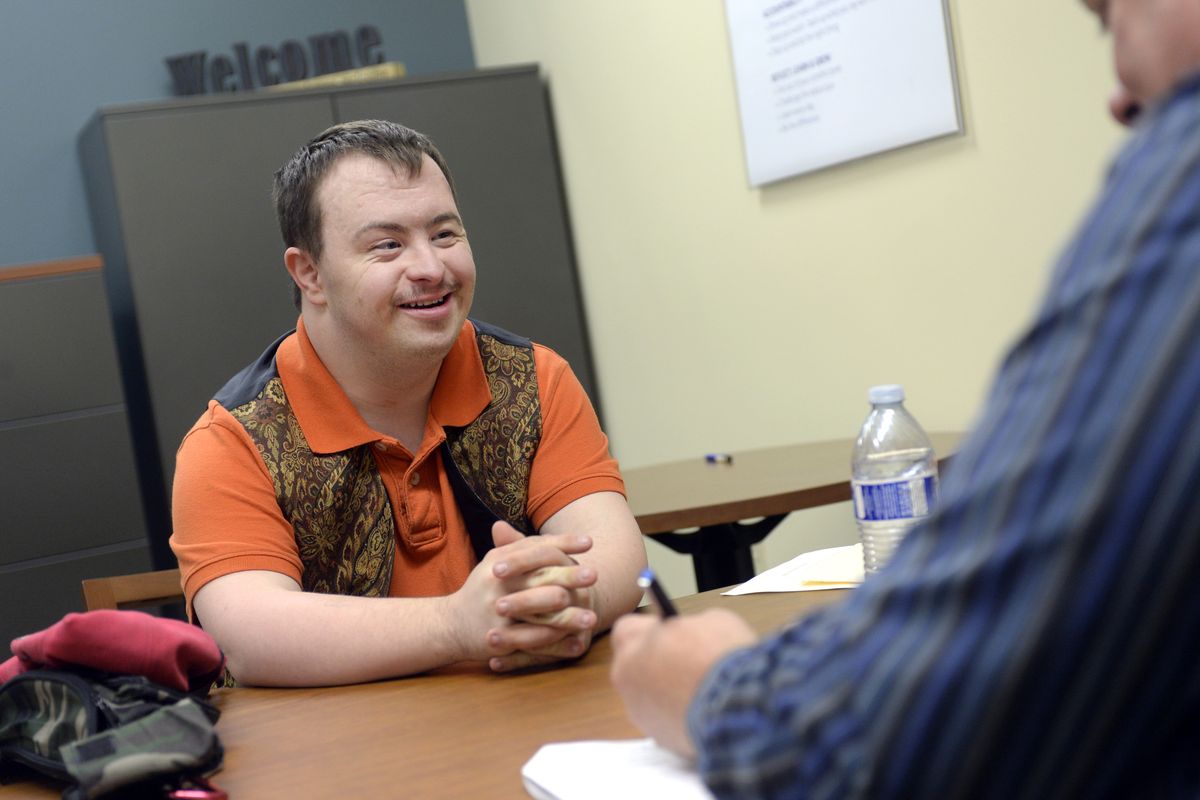Partners for Work connects employers, people with disabilities

Greg Terhaar surprised his interviewers when they asked him what kind of job he’s seeking.
“Working for the government, doing policy-making for disability rights on a global stage,” Terhaar replied.
Terhaar, 26, already has some experience. As someone who has Down syndrome himself, he has been to Olympia and Washington, D.C., advocating for people with disabilities, and has been a member of the Spokane Human Rights Commission.
But he has had trouble finding steady employment. He is now working at Target, doing what he says is mostly cleaning, and he is looking for a more fulfilling job – something people with developmental disabilities have a hard time finding.
The Partners for Work program, started a year ago by Spokane’s Rotary Club, aims to create job opportunities for people with developmental disabilities.
Nine local businesses and a representative from U.S. Rep. Cathy McMorris Rodgers’ office gathered Monday at the Numerica Credit Union headquarters in Spokane Valley and conducted mock interviews for five people who have developmental disabilities. The exercise was intended to hone their job-hunting skills.
Brian Behler, president and CEO of Skils’kin, a local nonprofit that helps adults with disabilities find employment and improve living opportunities, is also a member of the Rotary Club #21 in Spokane and was in charge of the mock interview event.
He said the mock interviews were a great networking opportunity for the five interviewees and might have helped the business people who participated envision jobs that could be filled by people with disabilities.
“Most work cultures greatly benefit from having someone who’s differently enabled,” Behler said.
That’s been the case at Numerica Credit Union, which has hired multiple long-term employees with developmental disabilities.
“I think it’s a win-win situation,” said Kelli Hawkins, a Numerica spokeswoman. “We can help the community and bring diversity into the workplace.”
Yet over 85 percent of people with intellectual and developmental disabilities in Washington who are supported by state agencies don’t have integrated employment, according to a 2013 report. That means they aren’t in a workplace where most of the workforce is not disabled.
“There’s a certain amount of fear in meeting somebody who looks or acts different than you would normally expect,” Behler said. “We’re pushing on that wall of reluctance and fear.”
The Partners for Work program has been successful in the Puget Sound area for the last decade.
Behler said Rotary hopes it can lower the local high unemployment rate for the developmentally disabled in the next five years.
Currently, many people with disabilities are funneled to janitorial work, even though some have higher aspirations.
Meagan Garrett, a member of Rotary Club #21, grew up with a brother who had Down syndrome. She started noticing at a young age that he was treated differently, she said; while she was in class, for example, he was often cleaning the library.
“They were training him to be a janitor,” Garrett said. “I knew he was capable of more.”
Terhaar believes the same of himself.
“I don’t want to do the same thing over and over again. I like to do a variety of things,” Terhaar said in his mock interview. “I want something that’s engaging.”
Behler said finding a job that works out for both the employer and employee is possible. The challenge is getting businesses to realize that hiring a developmentally disabled person may benefit their company. If the Partners for Work program can do that, he believes great things will happen.
“It will make Spokane a better place,” Behler said.